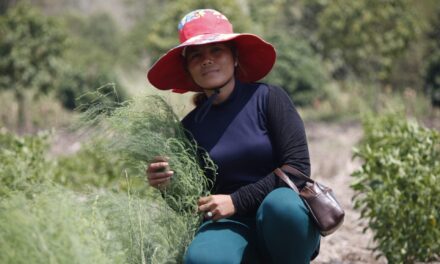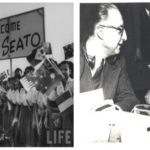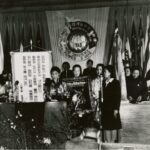Manila, Philippines 一 In commemoration of the sixth year anniversary of the passage of the United Nations Declaration on the Rights of Peasants and other People Working in Rural Areas (UNDROP) on December 17, 2018, social movements and peoples’ organizations together with peasant movements and civil society organizations in the Philippines call for the cessation of lawfare, criminalization, and violence against the peasant group, Samahan ng Nagkakaisang Mamamayan ng Barangay Sumalo (SANAMABASU) in the village of Sumalo, Municipality of Hermosa Municipality in Bataan.
In line with the official communications to the Philippine Government and to the Litton & Co., Inc. and Riverforest Development Corporation (RDC) from United Nations Special Rapporteurs (UNSRs) on the Right to Food, Adequate Housing an Adequate Standard of Living, the Right to Non-discrimination, and on the situation of human rights defenders, alongside the UN Working Groups (UNWG) on the issue of human rights and transnational corporations and other business enterprises, as well as the Working Group on the rights of peasants and other people working in rural areas (UNDROP), various peasants, land rights movements, and solidarity groups at the national, regional, and international levels urge for swift actions and a timely decision for the release of the unjustly imprisoned Filipino peasant leaders.
Last September 16, the UNSRs and WGs brought to the attention of the Philippine Government its concerns about the direct links between the operations of Litton and RDC and peasant criminalizations in the Philippines, with the struggle of Sumalo as an emblematic case of these human rights violations and abuses. In their communications, they explicitly asked both the Philippine Government and the Company to take “all necessary interim measures (…) to halt the alleged violations and prevent their recurrence and in the event that the investigations support or suggest the allegations to be correct, to ensure the accountability of any person(s) responsible for the alleged violations.”
Presently, eight peasant leaders from SANAMABASU are in detention for facing trumped up criminal charges of syndicated estafa (fraud), a non-bailable offense, for raising donations to support their legal campaign for agrarian reform. Earlier this year, cases against two leaders from the group were dismissed by local courts from the same charges, owing to the baseless nature of these charges, which should have already been dismissed at the prosecutor’s level according to the Department of Justice (DOJ) circular.
SANAMABASU has faced more than 50 different criminal and administrative cases from RDC and other pro-land conversion and development groups in the Province of Bataan. Numerous cases were also filed to eject more than a hundred families in the Sumalo area without clear guidelines from the Hermosa Municipal Government.
The issue of lawfare and criminalization of peasants weighs heavily on the country’s food production as farmlands (and other natural resources) become increasingly vulnerable to corporate capture for real estate investment, and where small-scale food producers are commonly driven off through legal and extra legal force from tillages and homes due to development aggression.
With the Philippines becoming the world’s top importer of rice (the food staple of the country), stiffer policies that protect farmlands from land-use conversions, and protect small-scale food producers such as SANAMABASU from judicial harassments need to be passed by government alongside the effective implementation of social justice programs such as the Comprehensive Agrarian Reform Program (CARP), the groups say.#
Quotes:
Fe Andulan of SANAMABASU and one of the accused farmers:
“The sheer number of cases filed against us over the last decade—including the cost of filing our agrarian petition—compelled us to raise organizational funds to cover legal fees. But they even used it as a pretext to detain and silence us. These cases against us are simply meant to derail our struggle for our land.”
Lorna Favorito, also of SANAMABASU and one of the farmers accused of syndicated estafa who went through trial that resulted in the dismissal of her case:
“A number of similar cases of criminalization against us have already been dismissed by the courts. We trust that these cases will [also] be dismissed. We thank the Judge for dismissing the cases against me and my fellow accused. We are confident that in the end, all those accused will regain their freedom and the Justice we deserve.”
Joseph Purugganan, Co-Director, Focus on the Global South:
“The Sumalo farmers’ case is but one of a rising number of criminal cases thrown against land, indigenous and environmental rights defenders. This alarming trend constitutes what law experts have referred to as strategic lawsuits against public participation or SLAPP, which are meant to harass, vex, exert undue pressure or stifle enforcement of laws or assertion of people’s rights.”
“The joint communication from the Special Rapporteurs, the report on the improper influence of economic actors with a section on SLAPP, are two important developments in the fights against criminalization of land rights struggles. It is important to sustain this international pressure.”

![[Press Release] On the sixth year of the adoption of UNDROP, criminalized Filipino peasants continue the fight to regain their liberty, assert their rights, and advance their agrarian struggles together with solidarity movements](https://focusweb.org/wp-content/uploads/2024/12/34658614460_8fbe600f3d_k-1280x640.jpg)






